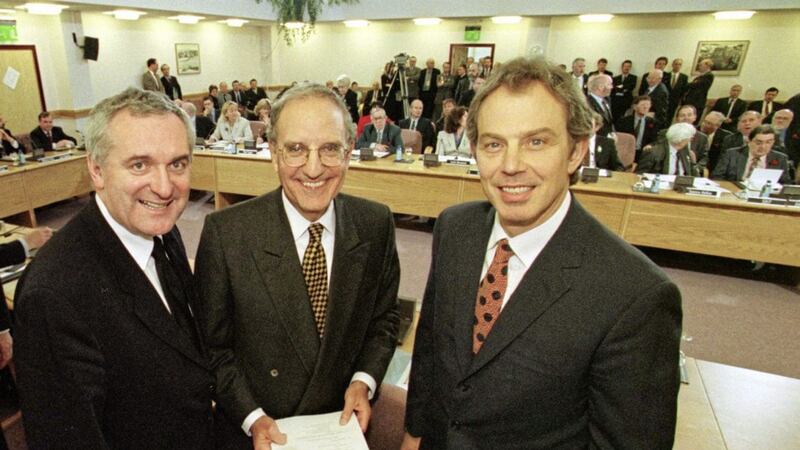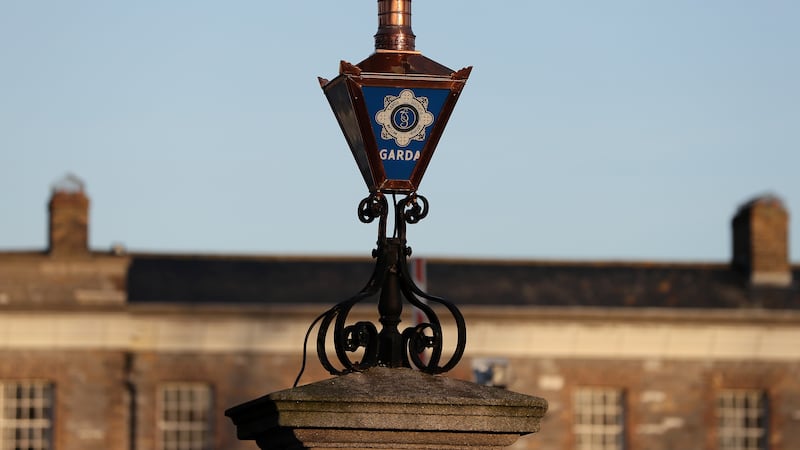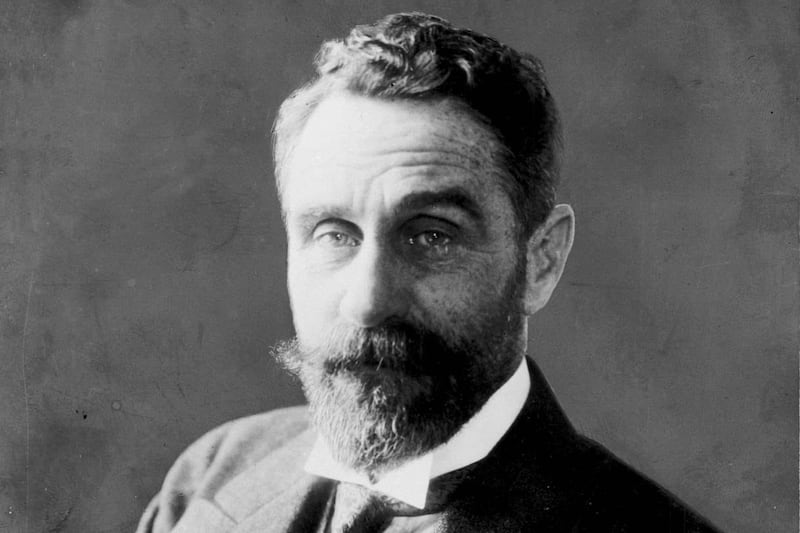Former Taoiseach Bertie Ahern has criticised Liz Truss, who has resigned as the UK’s prime minister, describing her stance on the Northern Ireland Protocol negotiations as unhelpful.
Mr Ahern said he hopes whoever becomes the next prime minister will take a “proactive” approach to the talks with the EU.
The former Fianna Fáil leader, one of the architects of the Good Friday Agreement, told an Irish parliamentary committee that the prime minister had changed on his way through the door of the committee.
“Whoever the British prime minister is, hopefully they will take a bit of a proactive position,” Mr Ahern said.
“Quite frankly, I didn’t think it was helpful what the British prime minister of yesterday said, so maybe whoever is there tomorrow might say something different.
“What she said yesterday was that even if there was negotiations, that what was in the legislation would be the bottom line.
“Now, I never tried negotiations that declared the bottom line before I went into the negotiation, so that’s clearly not going to solve anything.”
Ms Truss said yesterday that she was “completely committed” to the Northern Ireland Protocol Bill and that negotiations with the EU will reflect “the same position”.
The Bill, which would allow the UK Government to effectively tear up parts of the protocol, starts its committee stage in the Lords next week, where it is expected to face stern opposition.
The protocol was aimed at avoiding a hard border with Ireland but has created economic barriers on the movement of goods between Great Britain and Northern Ireland, causing resentment and anger among many unionists and loyalists.
The dispute has also created an impasse in efforts to form a devolved government administration in Belfast, with the DUP refusing to return to powersharing.
Mr Ahern told TDs and senators it would be an “awful pity” if the UK Government calls an election in Northern Ireland next week.
The former taoiseach said it is “hard to see” much progress being made on the protocol issues before next Friday’s deadline.
If a Stormont administration is not established by October 28, the UK government has made clear it will fulfil a legislative obligation to call a snap Assembly election – December 15 has emerged as the likely date for such a poll
“The Secretary of State for Northern Ireland is saying that he’ll call an election next week… whether that’ll happen or not happen, but I think it’d be an awful pity,” Mr Ahern told the committee.
He added: “It takes two to tango and if the British Government don’t get into the discussions, well, it’s very difficult to see it (progress being made).
“Hopefully whoever the next British prime minister is, and the officials, hopefully they can get down to real negotiations. But realistically, it’s hard to see much happening before Friday week.”
Mr Ahern also told the Good Friday Agreement parliamentary committee in Dublin that restoring devolved government in Stormont will require “risk-taking” and “compromise” by all involved.
“The only way forward is in solutions that work for everybody,” he said.
“That was the spirit at the heart of the Good Friday Agreement and it’s clear to me that it must be the spirit at the heart of how current difficulties are resolved.
“Whether one is talking about the Northern Ireland Protocol, the restoration of the Executive and Assembly, legacy or the range of other challenges that we face that will require leadership by everyone.
“It will require risk-taking by everybody, and it will involve compromise, but just like my generation was able to do nearly a quarter century ago, I’m pretty sure that the leaders today will be able to rise to that challenge.”








